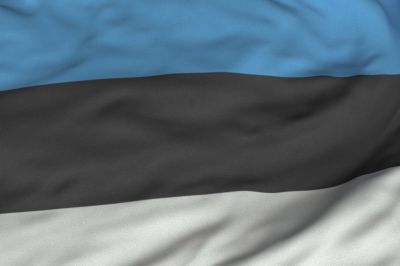Area (km2): 45 226
Population (mln): 1,34
Official language/s: Estonian
Internet TLD: .ee
Calling code: +372
Member of the EU from: 1st May 2004
Unemployment rate Sep 2011 (%): 11.4
Unemployment rate under 25 years Sep 2011 (%): 26.0
Unemployment rate Sep 2012 (%): 9.6
Unemployment rate under 25 years Sep 2012 (%): 18.8
Population statistics 20-29 age group 2011 (%): 15,6
Country codes in education system: EE
Expected duration of education (years): 17,9
According to the Constitution of the Republic of Estonia, universities
and research institutions are autonomous within the restrictions
prescribed by law. A
university is a research, development,
educational and cultural institution where students have a possibility
in particular to choose to focus their studies on research and
development activities: higher education is acquired according to the
Bachelor’s study, Master’s study and Doctoral study curricula in several
fields of study. In an educational institution that is a part of the
structure of a university, professional higher education may also be
offered.
An institution of professional higher education is a
university-type educational institution where a student can acquire
higher education according to the professional higher education
curriculum. Vocational schools may in exceptional cases also offer
professional higher education.
The task and mission of a university is:
- to advance science and culture;
- to develop students into responsible and enterprising citizens;
- to cooperate with other universities and with the whole society
while supporting the development of the society and preservation of
national culture through efficient research, development and creative
work;
- to create and develop opportunities based on integrated
education and research activity for international cooperation,
acquisition of higher education based on scientific approach as well as
for lifelong learning;
- to provide services based on education, research and other creative activities necessary to the society.
According to the Standard of Higher Education, the objectives of cycles of higher education in universities are as follows:
- in Bachelor's study a student improves his or her general
educational knowledge and acquires the basic knowledge and skills of a
field of study and the knowledge and skills necessary for Master's study
and commencement of work;
- in Master's study a student improves his or her knowledge and
skills related to the field of study and acquires the knowledge and
skills necessary for independent work and Doctoral study;
- in Doctoral study a student acquires the knowledge and skills
necessary for independent research, development or professional creative
activity.
The objective of professional higher education is to give a
student the necessary competencies for employment in a particular
profession or to continue his or her studies in Master’s study. Based on
the latter, one of the study objectives may be transfer to the next
cycle of higher education.
The task of institutions of professional higher education
is preparation of motivated specialists with excellent professional
skills and work attitudes in the first cycle of higher education, taking
account of the needs of the labour market. Study is characterised by
flexibility and practical focus of curricula as well as close
cooperation with enterprises, vocational unions and other social
partners.
The functions of an institution of professional higher education are:
- to promote lifelong learning corresponding to the needs of the labour market,
- to offer services comprising study and research activities,
- to carry out applied studies;
- to develop students into responsible and enterprising citizens;
- to co-operate with different institutions and communicate
actively with the public while supporting the development of the society
through efficient development, innovative activity and applied
research in the their field of activity.
